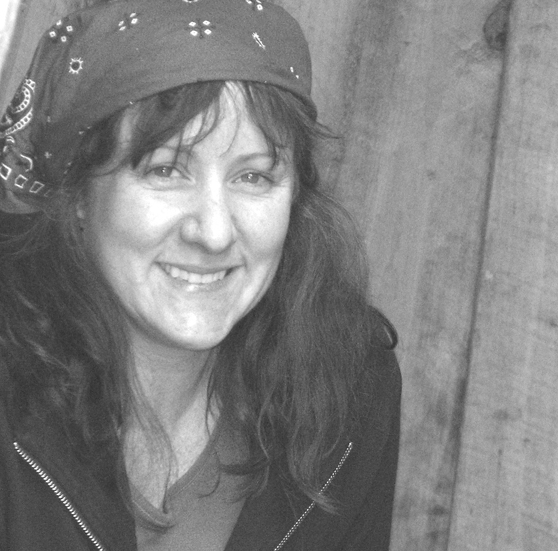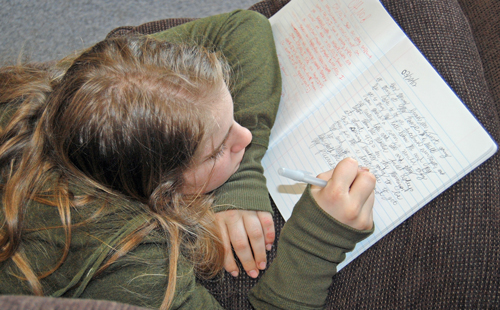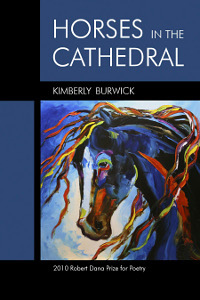I like to make the middle
something sassy and meaty.
I like to make a fine ending
that swoops.
 Welcome to Fast Five — short interviews with my favorite writers. Life may be short but who doesn't have time for five questions — and a chance to win a great book? (To win, simply post your name in the comments section. See details below).
Welcome to Fast Five — short interviews with my favorite writers. Life may be short but who doesn't have time for five questions — and a chance to win a great book? (To win, simply post your name in the comments section. See details below).
 Stefanie Freele's stories and flash fiction can be found in Glimmer Train, Quarterly West, American Literary Review, Pank, and many other literary journals. Her collection, Feeding Strays, was a finalist for both the John Gardner Binghamton University Fiction Award and the Book of the Year Award. Her stories have been twice nominated for the Pushcart Prize. She recently won the Glimmer Train Fiction Open, and her second collection, Surrounded by Water, will be published in May 2012. In addition, Freele is the Fiction Editor at the Los Angeles Review.
Stefanie Freele's stories and flash fiction can be found in Glimmer Train, Quarterly West, American Literary Review, Pank, and many other literary journals. Her collection, Feeding Strays, was a finalist for both the John Gardner Binghamton University Fiction Award and the Book of the Year Award. Her stories have been twice nominated for the Pushcart Prize. She recently won the Glimmer Train Fiction Open, and her second collection, Surrounded by Water, will be published in May 2012. In addition, Freele is the Fiction Editor at the Los Angeles Review.
How did you come to writing?
As most writers, I have always loved reading. I never knew that I could become a real writer though until I decided to go for my MFA at the Northwest Institute of Literary Arts: Whidbey Writers Workshop. Up until then, I thought there were readers, people who journaled a bit and then some very gifted folks over there that created their wonderful writing for us readers. Somehow a little whisper: write, grew to a yell: WRITE! and one finished story led to another led to a collection.
Your work is wonderfully distinct. Feeding Strays, a collection of 50 short (and short-short) stories, was a finalist in two prestigious contests, and has been described as loopy, sensitive and "full of strange, original invention." How do you describe your writing content and style?
I don't know if I can describe it, I may be too close to my own writing, it is like trying to describe yourself. I don't know if I could do that either. I like to not waste much time falling into the beginning, I like to make the middle something sassy and meaty, I like to make a fine ending that swoops. Okay, I'm being silly there, but truly, it is difficult to dissect one's own writing.
Some people say "first thought best thought." Others edit a piece into place. What is your writing process?
Usually a little something nags at me along the way, something someone said, or something I observed and it nags enough that I finally get down to write about it. The little something then somehow births a story. I don't truly know how it works, but for instance, the last story of Feeding Strays, called "Every Girl Has An Ex Named Steve" began from two incidences.
One: I found myself saying just that to a friend when we were dog walking, "Every girl has an ex named Steve" and immediately knew I needed that line, and extra proud because it came from myself and I didn't need permission to swipe it.
Two: I witnessed a teenager in a banana suit standing outside a store while stiffly handing out coupons. I'd never seen a more miserable looking fellow. He oozed misery. He hated that banana suit body-cast more than he hated anything else in his short little life. I was watching youthful disillusionment happening right before my eyes. I felt achingly painfully sorry for him.
Thus, the first line of the story, "We tell her not to date a man in a banana suit."
I edit later when I think the story is told. Then, I use a different part of my brain, one that organizes and chops and perfects.
As the fiction editor for the Los Angeles Review, what do you look for in a story? What do you love to see, and what makes you cringe?
Cliches make me cringe. Overused plots make me wilt. Flowery self-important writing makes my face do the just-ate-a-lemon. Over-reliance on dialogue has a confusedly queasy affect on me and I have been known to drift off during weighty segments of backstory. I love to see more humor, more wacky, more real crisis and conflict, more creative plots.
You are an accomplished writer, reader, poet and editor. What do you know now that you didn't know when you first started writing?
I did not know I would meet so many talented and genuine authors. I've had an enormous privilege, by being both the Fiction Editor of the Los Angeles Review, a former submissions editor with Smokelong Quarterly and speaking at various conferences, where I've been introduced to some beautiful and amazing writers. When you get a signed book from an author you've just met and you go home and love the book, that is a wonderful feeling. I thought being a writer would be very lonely, very isolated and curmudgeonlike but it doesn't have to be.
And, although I knew I loved words, loved stories, loved to read, I didn't know how much that love can just keep growing until you just want to shout about it. But, shout not too long, because hey, I've got a pile of books to read.
Bonus Question: I'm a collector of words and often have my students collect words, too. Do you have any favorite words?
The other day someone used the word bombastic and I found myself in love with that word. I don't think I've ever said it aloud, however I'm going to attempt to insert it somewhere, either in a story, or in an accusation. I really want to tell someone they are being too bombastic. And, I want to be right about it.
Win this!
 Win a copy of Glimmer Train, the literary journal featuring While Surrounded by Water, the Stefanie Freele story that won the Glimmer Train Fiction Open and evoked the title for her forthcoming collection.
Win a copy of Glimmer Train, the literary journal featuring While Surrounded by Water, the Stefanie Freele story that won the Glimmer Train Fiction Open and evoked the title for her forthcoming collection.
To enter the drawing, simply add your name and contact info in the comments section below. Feeling shy? Email me, with "Glimmer Train" in the subject line: dcm@drewmyron.com
A name will be drawn and a winner announced on Monday, March 19, 2012.


















 k
k
 sh)
sh)


